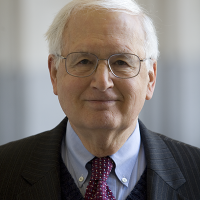Cautious and Conflicted: Singapore, Malaysia, and the U.S. Rebalance to Asia
Singapore and Malaysia, like their Southeast Asian neighbors, must balance their relations with China and the United States with increasing care. Both countries are party to the Trans Pacific Partnership negotiations driven by the United States and both have signed up as founding members of the China-led Asian Infrastructure Investment Bank. Both value their economic relations with the PRC—their largest trading partner—but seem to prefer an enhanced American regional security role to the prospect of Chinese military dominance. Neither nation has traditionally been viewed as pro-American, but Singapore now welcomes continuous deployment of American littoral combat ships in its waters and Malaysia seeks American assistance in balancing Chinese assertiveness in the South China Sea.
Dr. Pek Koon Heng of American University and Dr. Joseph Chinyong Liow of the Brookings Institution and Nanyang Technology University offer their views on Singaporean and Malaysian responses to U.S.-China cooperation and competition in the region. Below are key takeaways from their presentations and discussion.
View from Malaysia (Dr. Heng)
- Malaysia does not view the U.S. rebalance strategy as a policy to contain China and welcomes strengthened U.S. engagement in the region.
- Although domestic politics forces Prime Minister Najib Razak to focus more on the economic side of the rebalance, Malaysia has increased military ties with the United States and seeks to strengthen these ties due to Chinese naval expansion.
- As a claimant to the ongoing South China Sea disputes, Malaysia feels the United States is handling the issue effectively but cautions against any action that may antagonize China in the future.
View from Singapore (Dr. Liow)
- The region is experiencing a much more complex security environment, with questions arising as to how to accommodate the U.S.-China relationship. Singapore's goals is to creat a situation that forces both countries to critically assess their actions before carrying them out.
- Singaporeans question the sustainability of U.S. engagement.
- ASEAN members need to work together, rather than remain inward looking, to confront pressing issues such as the South China Sea disputes.
- Singapore welcomes a larger role for Japan in Southeast Asia but does not want the region to become a playing field for great power competition.
This program is part of the Wilson Center’s Weighing the Rebalance Series, a joint effort of the Asia Program and the Kissinger Institute on China and the United States.
Speakers

Founding Director Emeritus, Kissinger Institute on China and the United States
Hosted By

Kissinger Institute on China and the United States
The Kissinger Institute works to ensure that China policy serves American long-term interests and is founded in understanding of historical and cultural factors in bilateral relations and in accurate assessment of the aspirations of China’s government and people. Read more


Indo-Pacific Program
The Indo-Pacific Program promotes policy debate and intellectual discussions on US interests in the Asia-Pacific as well as political, economic, security, and social issues relating to the world’s most populous and economically dynamic region. Read more
